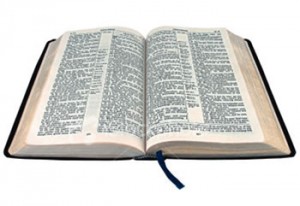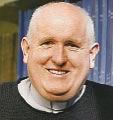Vatican II and the Proclaiming of Scripture
The first document to emerge from the Second Vatican Council was the constitution on the Liturgy, Sacrosanctum Concilium. Of the assembled Bishops 2,147 voted for it and 4 voted against it. It was to have a huge impact on the Church. Consider the effect of one instruction contained in the document:
51. The treasures of the Bible are to be opened up more lavishly so that a richer fare may be provided for the faithful at the table of God's word. In this way a more representative part of the sacred scriptures will be read to the people in the course of a prescribed number of years.
In the Tridentine Rite of the Mass, and in the Extraordinary Form, there are the “Epistle”, and the Gospel and they change according to a one-year cycle. Most Sunday epistle readings are from the letters of St Paul. Readings from the Old Testament were never used on Sundays, but only at the Easter Vigil, the Vigil of Pentecost, the feast of Epiphany and its octave, during Holy Week, and on some weekdays (especially Ember days, weekdays of Lent, the feasts of some saints, and some votive Masses). If you went through and counted the number of verses in the Bible then you would find that each year roughly a quarter of the verses of the gospels were proclaimed, about one ninth of the New Testament Epistles, and about 1% of the Old Testament. There are many other citations of Scripture in the prayers and the gradual.
In 1969 Pope Paul VI promulgated the Ordo Lectionum Missae (Order of the Readings for Mass) outlining the new structure: Three readings plus a psalm on Sundays, two readings and a psalm on Weekdays. The Sunday readings to change according to three-year cycle and the weekday according to a two-year pattern. There was to be a short Old Testament passage as the first reading of each Sunday, thematically linked with the Gospel which we are systematically reading through. This means the Sunday Old Testament readings “jump around”, by contrast the first reading on the Weekday is a “continuous” reading – a sequential series of readings from the same Old or New Testament book.
We still only hear part of the Bible, but much more than before the Council
We still only hear part of the Bible, but much more than before the Council: Over any three years of Sundays and weekdays we hear 90% of the Gospels, 60% of the New Testament Epistles, and about 14% of the Old Testament
The Sunday cycle starts on the first Sunday of Advent (either the last Sunday of November or the first Sunday of December). The years are labelled A, B and C in that order. Hence on Sunday 2 December 2012 we are commencing the C year of the cycle, during the Sundays of the following year (most of 2013) we read the Gospel of Luke. In the A Cycle we read Matthew, in B we read Mark. John’s Gospel gets spread across all three years but there is more of it in B because Mark’s is the shortest gospel. Which gospel is being read in any calendar year can easily be determined by dividing the year by 3 and seeing what is left over. If the remainder is 1 then it is year A, if 2 year B, and if three goes in leaving no remainder it is year C. Hence 2012/3 = 670 remainder 2, so this year we have been in the B year.
Determining the weekday cycle is even easier – odd years are year 1, even years are year 2. So throughout 2012 we have been in B2 – B readings on Sunday, Cycle 2 readings on weekdays. Next year (and the Church year starts in Advent) we will be in C1.
This system of proclaiming so much of the bible through themed readings and continuous readings has been so widely appreciated and accepted that many other Christian churches have adopted the structure with relatively minor adaptations. In 1994 the Revised Common Lectionary was published after having been trialled for nine years. It came from a collaboration between the North American Consultation on Common Texts (CCT) and the International English Language Liturgical Consultation (ELLC). The CCT membership includes the United States Conference of Catholic Bishops and the Canadian Conference of Catholic Bishops as well as traditional “liturgically-based” Protestant denominations such as Lutheran, North American Anglican (Episcopalian), Presbyterian, and more loosely Methodist and Seventh Day Adventist.
The Vatican Council’s decision to open the treasures of the bible more lavishly has borne extraordinary fruit for ecumenical relations. Many Christians share in hearing the same gospel text proclaimed on the same day.

 Entries(RSS)
Entries(RSS)